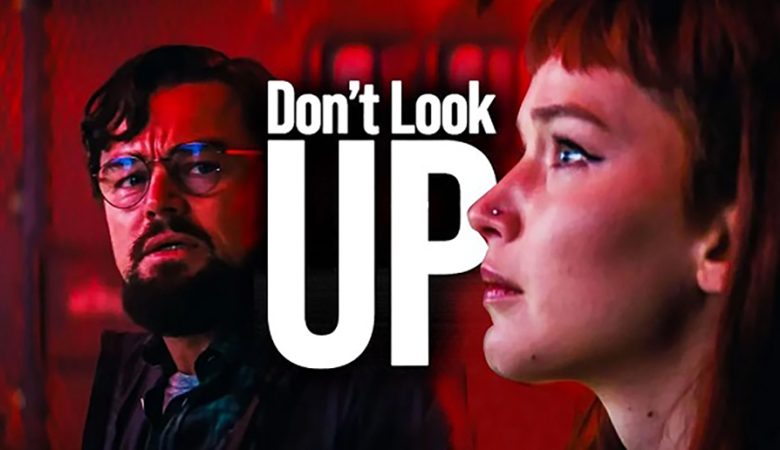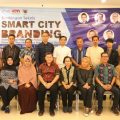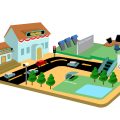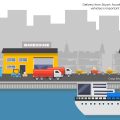All disaster films seem to start with ignoring scientists. Don't Look Up is no exception. In fact, it's about people who ignore or completely deny scientific evidence. Leonardo DiCaprio and Jennifer Lawrence play astronomers, literally discovering the destruction of the Earth and trying to convince the President to take action to save humanity. This is a satire that explores how individuals, scientists, the media, and politicians react when faced with unpleasant, threatening, and inconvenient scientific facts.
This movie is a fable about climate change, how to prevent people with the power to do something about global warming from taking action, and how vested people can mislead the public. Indicates if there is. But it also more broadly reflects the denial of science, including what the world saw at COVID 19.
The main difference between the premise of the movie and the actual impending crisis facing humanity is that individuals may be powerless against comets, but everyone can act decisively to stop climate change. It may be useful to know the myths that fuel the denial of science.
Myth # 1: You can't act unless science is 100% accurate
After explaining that the comet is on a collision course with Earth, the first question President Olin (Meryl Streep) asks scientists is, "So how sure is that?" With 99,78% certainty. When he learned that, the president's chief of staff (Jonah Hill) replied with confidence, "Wow, not 100%!" Government scientist Tedio Grethorpe (Rob Morgan) said, "Scientists are never 100%. I don't want to.".
Scientists continue to study to learn more, even if the evidence clearly points in one direction. At the same time, they recognize the overwhelming evidence and act on it. Evidence that the Earth's climate is changing in dangerous ways by human activity, especially the burning of fossil fuels, is overwhelming and has been going on for many years.
It is often when politicians take a wait-and-see attitude about climate change (or sit and ponder, as the movie shows), suggesting that more evidence is needed before taking action. It is a form of scientific denial.
Myth # 2: The disturbing reality as explained by scientists is too difficult for the general public to accept
The title sentence "Don't Look Up" shows this psychological assumption and how some politicians can conveniently use it as an excuse for neglect while promoting their own interests.
Fear is a growing and understandable psychological response to climate change. Studies show that strategies that people can adopt to effectively address climate insecurity include: Get better information and talk to others about the problem. This allows individuals to manage their anxiety while taking steps to mitigate risk.
According to an international survey of 2021, 80% of people are actually trying to change their lives and ways of working to reduce the effects of climate change.
Myth # 3: Technology saves us so we don't have to act
Often, people want to believe in the results they like, rather than facing a reality that is known to be true. The belief that a single technical solution, such as carbon capture, solves a climate crisis without the need for changes in policies, lifestyles, or practices may be based on hope rather than reality.
Technology helps reduce the impact on the climate. However, research shows that progress is unlikely to be fast enough. Expecting such a solution is a form of scientific denial, distracting from the major changes needed in our way of working, living and playing.
Myth # 4: Economy is of utmost importance, including the imminent crisis predicted by science
Taking action to delay climate change is costly, but not taking action is extraordinarily costly, both in terms of lost lives and property. Consider the cost of a recent wildfire in the west. Boulder County, Colorado lost nearly 1,000 homes in a fire on December 30, 2021, after hot and dry summers and autumns, and with little recent rain or snow.
A study of the 2018 California fire (another hot and dry year) in which the city of Paradise burned estimated damage, including medical costs and financial turmoil, to be approximately $ 148.5 billion. Runners pass the outline of a burnt house, behind a non-burning house on December 30, 2021, nearly 1,000 homes were burned down in Boulder County, Colorado, when a wildfire blew a wildfire into an unusually dry landscape. When people say they can't act because it costs money to act, they deny the cost of negligence.
Myth # 5: Our actions must always be in line with our social identity group
In a politically polarized society, individuals may feel pressured to make decisions based on what their social groups believe. In the case of beliefs about science, this can have disastrous consequences-as the world saw in the COVID 19 pandemic.
In the United States alone, more than 825,000 people have died of COVID 19, but strong ID groups have actively prevented people from being vaccinated or taking other precautions that may protect them. The virus, like climate change, is unaware of political parties. Rising global temperatures, worsening storms, and rising sea levels endanger everyone, regardless of their social group.
How to Fight Science Denials-And Climate Change
Comets heading to Earth may have little to do for individuals, but in the case of climate change, it is not. People can change their practices to reduce carbon emissions and, importantly, pressure government, business, and industry leaders to take the following actions: In their book, "Science Denial: Why It Happens and What to Do About It," individuals, educators, science communicators, and policymakers are hampering the development of this new problem. Describe the steps you can take to deal with it. Example:
- Individuals can explore their motivations and beliefs about climate change and remain open-minded to the scientific evidence.
- Educators can teach students how to obtain and evaluate scientific information.
- Science communicators can explain not only what scientists know, but how they know it.
- Politicians can make decisions based on scientific knowledge.
As scholars working to help people make informed decisions about complex issues, we encourage people to consume news and academic information from sources outside their identity groups. To do. Get out of your social bubble and listen and talk to others. look-up!
Writter: Diva Maharani | Illustrator: Akbar Nugroho





